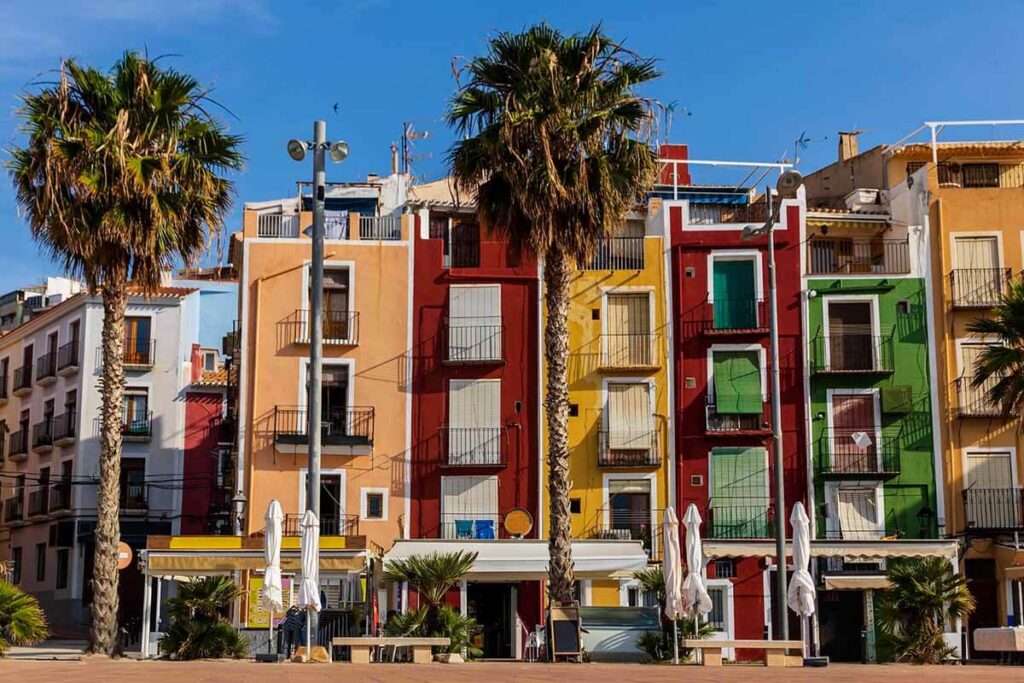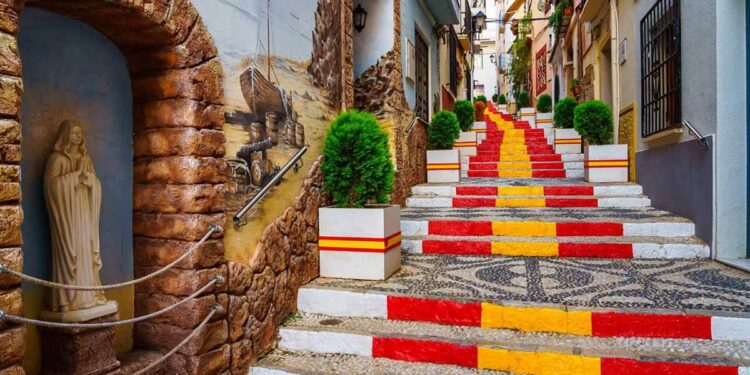Moving to Spain can be an exciting adventure, but it can also bring challenges. Starting from cultural adaptation, and to find a good place to live: thoughtful relocation always requires research and making informed decisions. Alicante, a city located in the Costa Blanca region of Mediterranean Spain, is known for its diverse and active real estate market, as well as its buzzling lifestyle where tranquility and beach life can also be found easily. That’s why many of those willing to live abroad, choose this city. Furthermore, it might be worth looking at the prices apartments in Alicante offer, as the real estate market in the country is constantly growing.
One of the most popular approaches to getting permanent residence status is to acquire real estate. As per Spanish legislation, a foreigner must possess a property no cheaper than EUR 500,000 in order to be eligible for a so-called golden visa. Let’s look at some Alicante destinations and districts to better navigate your relocation to Spain.
Alicante districts
When it comes to buying property in Alicante, there are many different neighborhoods to choose from. From Villa Martin, a gated community with a golf course and shopping center, to Torrevieja, a popular expat and tourist hub with a lot of bargain homes, where each area offers something unique.
If you are seeking luxury and scenic views, Javea is the perfect destination, offering stunning landscapes, beautiful beaches, and a property market that accommodates both luxury and budget-friendly options. Guardamar, known for its luxury villas, is another popular option in case you are into a more laid-back Mediterranean lifestyle.
Meanwhile, Gran Alacant is an ideal choice for those looking for easy access to the city center and Alicante International Airport. Each neighborhood offers a different lifestyle, and buyers are encouraged to consider their criteria before making a decision.

Lifestyle in Alicante
The city offers a rich cultural heritage and a relaxed Mediterranean lifestyle, making it an ideal destination to move to. The city is known for its 300 days of sunshine a year, beautiful landscapes, and rich history.
It is warm here throughout the year, with the lowest temperature rates in winter months – it is 17 degrees Celsius here during the day and can be as low as 6 degrees during the night. The overall climate in Alicante is still mild – summer temperatures rarely rise above the 30-degree level. Compared to Madrid, Alicante’s weather is cooler and much softer, making it a perfect city to live with in a family and children.
Tourist season attracts thousands of people to the city, but even then, it is possible to maintain your habitual lifestyle. Education and transportation in Alicante are very developed. For instance, many local schools follow the British curriculum, so your child can boast a European certificate after attending one. The educational standards here are also high. Several expat city rankings assessed Alicante as the second favorite city among those who would like to relocate.
Regardless of your preferences and needs, the real estate market in Alicante has something for everyone, whether you want a ground-floor apartment, a luxury villa, or anything in between. Browse Spain-Real.Estate property listings and find the home of your dreams.
Adapt to the Spanish lifestyle quickly
Here are some tips to help you avoid common mistakes when relocating to Spain permanently:
- Get on top of legalities early: Do research on the procedures and legalities involved, from NIE numbers and visas to bank accounts, residency regulations, and pet transportation. EU nationals have different rules, so start early to avoid stress.
- Handle finances carefully: Consider currency exchange fluctuations, and ad hoc bills, and always have a rainy day fund. Don’t misjudge the cost of living in Spain, set a budget for socializing and daily expenses.
- Don’t live in holiday mode: The party atmosphere and laid-back lifestyle can be unsustainable when living overseas. Maintain a balance between practicalities and enjoying your new home.
- Be aware of cultural differences: Spain has 17 autonomous regions with different cultures, food, festivals, and history. Take your time to visit different areas and find the right fit.
- Adapt to the Spanish lifestyle: The Spanish siesta, lack of customer service, and “manana” attitude can be difficult to get used to. Plan your day accordingly and allow time for the slower pace of life.
- Be prepared for culture shock: Culture shock is real and can include bullfighting, unfamiliar public transport, missing favorite foods, and summer heat. Give yourself time to adjust and be patient.
To summarize, Spain is a vibrant and colorful country, but it also has its specifics. If you want to stay close to local traditions and not be alienated because of culture shock or language differences, it is always better to do your homework and come prepared.






